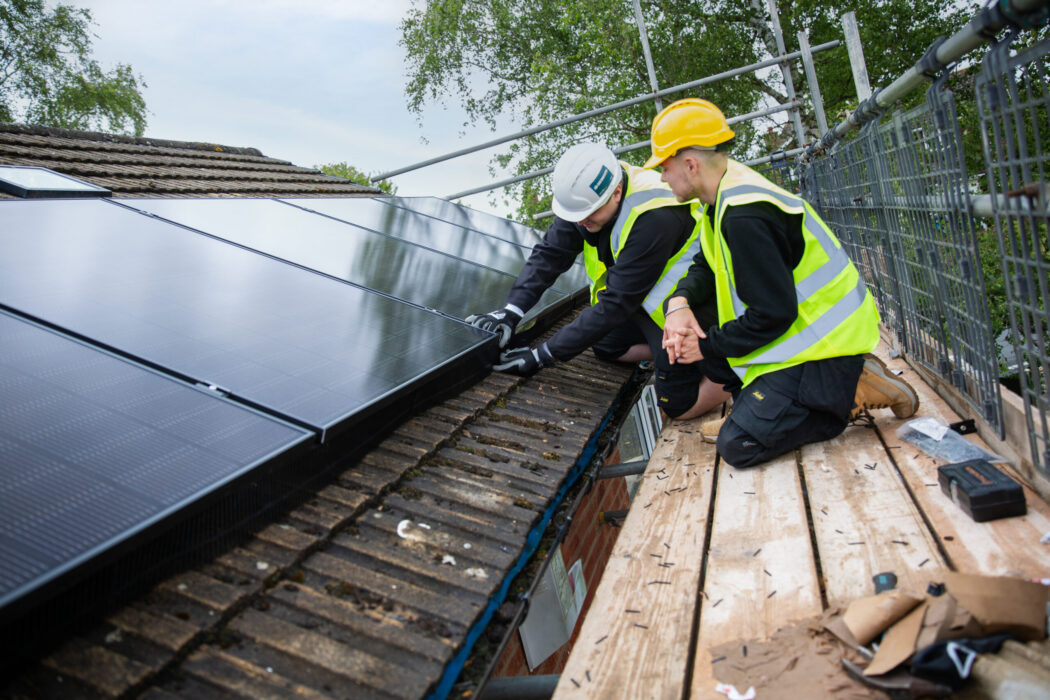
Solar Panels: Are They Worth It? The Ultimate Guide
Amidst rising energy prices and growing environmental concerns, homeowners are increasingly exploring renewable energy options to lower their bills and reduce their carbon footprint. Solar panels have emerged as a popular choice, but the upfront installation cost often raises the question: Are solar panels truly worth the investment? This guide delves into the mechanics of solar panels, differentiates between photovoltaic and solar panels, and examines the potential savings and government grants available to homeowners considering this sustainable energy solution.
What does the Solar Panel landscape look like?
As of early 2025, approximately 5% of UK households, around 1.4 million homes, have solar panels installed. This has significantly increased from 2020, when just under 1 million homes had solar panels installed.
There has been a notable increase in solar panel installation with many new home constructors opting to include solar panels in their building plans. This shift has been driven by the upcoming Future Homes Standard, which takes full effect in 2027, looking to ban gas heating systems in most new homes in England. Builders will need to adopt heat pumps to enhance energy efficiency and reduce carbon emissions.
In comparison, Scotland has had a higher adoption rate of solar panel installations, with 80% of new homes being fitted with solar panels.
How Do Solar Panels Work?
Solar panels work by converting sunlight into electricity using photovoltaic (PV) cells. These cells capture solar energy and generate a direct current (DC), which is then converted into usable alternating current (AC) electricity by an inverter. This power can be used in your home to run appliances, lighting, and even charge electric vehicles.
If your solar panels produce more electricity than you use, the surplus can often be sold back to the grid—an added bonus. The Government runs a scheme called the Smart Export Guarantee, in which you can be paid for any unit of electricity that you give back to the grid.
Photovoltaic vs Solar Panels: What’s the Difference?
This is a common question that customers ask. Simply put, photovoltaic (PV) is the technology used within solar panels. So when people ask about photovoltaic vs solar panels, they’re essentially talking about the same thing. However, there are different types of solar panels:
- Photovoltaic (PV) panels Generates electricity directly from sunlight.
- Solar thermal panels Uses sunlight to heat water for domestic use.
At Custom Heat, we install both PV solar systems and Solar Thermal panels. Solar PV is the most common for UK homes and best suited for reducing electricity bills. Learn more about our Solar PV installations.
Solar thermal panels are an efficient way to harness the sun’s energy to heat your water, and we offer expertly installed solar thermal systems that provide a sustainable, cost-effective solution for reducing your home’s energy consumption.
How much do Solar Panels cost?
One common question we get from customers is “How much is the upfront cost of solar panel installation?”. Many people say they are interested in adding Solar PV to their homes but are not always able to put in the investment.
The average cost to install solar panels ranges between £5,000 and £9,000. The cost is based on a number of factors (the number of panels, size of property) for example. This also determines how much energy is stored and saved and ultimately how much you are able to sell back to the grid.
There are a number of Government support grants available to help with the cost, which we talk about below.
Are Solar Panels Worth the Investment?
The short answer is: yes—for many homeowners. Here’s why:
- Lower energy bills Solar panels can significantly reduce your electricity costs. As well as enabling you to sell unused electricity back to the grid. Check with your energy supplier for exact savings.
- Charge your electric vehicle That’s right, electricity generated from your solar panels can be used to charge your car.
- Increased home value Homes with solar installations are often more attractive to buyers and could increase the value of your home.
- Reduced carbon footprint Solar energy is clean and renewable, helping you cut your emissions.
- Low maintenance Most systems require minimal upkeep and have a long lifespan (20–25 years).
While the initial cost can seem high, most homeowners start seeing returns within 6–10 years. That being said, you can start to save money on your utilities from day one of installation. With energy prices still volatile, locking in your own energy production now can be a wise investment.
Government Grants for Solar Panels
To make solar more accessible, the UK government offers financial incentives:
- ECO4 Scheme This programme helps eligible households (especially low-income or vulnerable homes) with the cost of solar installations.
- 0% VAT on solar Until 2027, there is no VAT charged on solar panel installation for residential homes.
- Smart Export Guarantee (SEG) This scheme allows you to earn money by exporting unused solar energy back to the National Grid.
We always recommend checking with a trusted installer (like us!) to see what support you’re eligible for.
Summary
If you’ve been weighing up the pros and cons and still wondering, “are solar panels worth it?”—the answer lies in your energy usage, property suitability, and long-term savings goals. With rising costs and strong government support, there’s never been a better time to explore solar.
At Custom Heat, our experienced team can guide you through the process, from initial consultation to expert installation. Interested in learning more? Contact us today for a free solar assessment.


